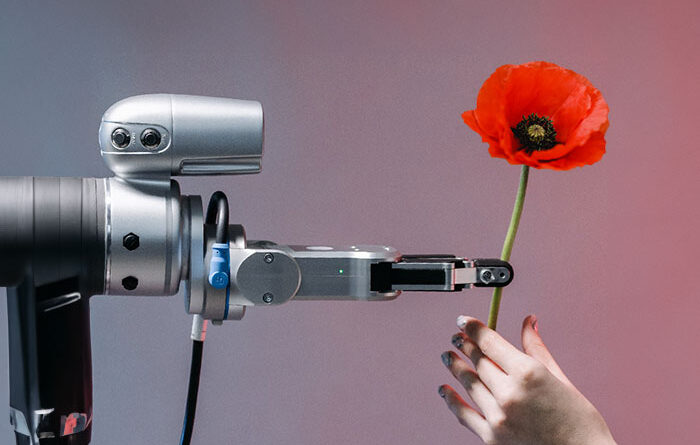Could artificial intelligence be a weapon of mass peace?
- Turning the Wight’s blue rinse tide into a sea of red - 20th August, 2024
- Are you emergency ready? - 20th June, 2024
- Will YOUR face fit in the digital future? - 17th June, 2024
On Remembrance Sunday, honouring a tradition started by his great-grandfather more than a hundred years ago, King Charles III laid a wreath at the Cenotaph to remember those who have “have served and sacrificed.” Lest we forget.
In World War I, millions of people lost their lives. Are they truly honoured, these statistics of the “war to end all wars”, if there are still combat casualties over a century later?
A few days before that solemn ceremony in London, Sir Donald McCullin was interviewed on BBC Radio Four. His name might not be familiar to you, but you may have seen his work. He is arguably Britain’s greatest living photographer; his camera witness to global atrocities for over six decades. From hostilities in Biafra, Vietnam and Northern Ireland, plus documenting AIDS, London gangs and even the Beatles, his impactful photographs are understandably award-winning.
This venerable and thoughtful artist potently proclaimed, “Everything I have done and contributed to showing how awful international conflict is, has been a waste of time really… I have been in so many wars and NOTHING has changed. What I am seeing is horrendous and tragically sad.”
A few days before McCullin’s broadcast despair, the government held an artificial intelligence summit. This international conference was held at Bletchley Park, appropriately enough, which was, of course, the base for second world war codebreakers.
Artificial intelligence has many applications, from medical diagnosis, to creative arts and writing. In general, the digital brain ingests large amounts of data, which it analyses to find structure and regularities. It then uses these patterns to make predictions about future states.
Technology secretary Michelle Donelan trumpeted that, “AI is already improving lives; from new innovations in healthcare, to supporting efforts to tackle climate change.”
In the opposite corner was multi-billionaire investor and space junkie ‘X’-traordinaire, Elon Musk, who conjectured at the conference that AI is “one of the biggest threats to humanity.”
It could be argued that, particularly having created what some see as the existential threat of artificial intelligence, that man is one of the biggest – if not THE biggest threat to humanity.
But what if we can use AI to find the solution to humans’ interminable need to destroy each other? Could the futility of war be solved with the utility of artificial intelligence. We could feed into the ersatz Einstein the inexhaustible amount of information about military strategy and the horrors of war. Stir in treaties and pacts; statistics of deaths and casualties, the surfeit of words written about Hitler, the march of the Roman Empire, the squabbles of ancient Greece. Maybe even Don McCullin‘s archive.
And if the self-thinking machines can’t tell us that war is stupid using this weight of academic postmortem, then maybe the lesson that we have learned from history is that we never learn from history.
Jeremy Corbyn MP states, “All wars end with some kind of peace conference. Let’s jump to that stage.” The millions of war dead deserve a better legacy than perpetual conflict.
This article first appeared in print in the Isle of Wight County Press on 1 December 2023 and also online.
Photo by Pexels




